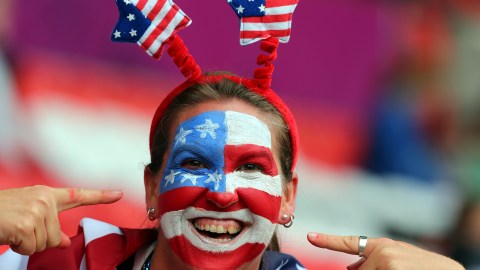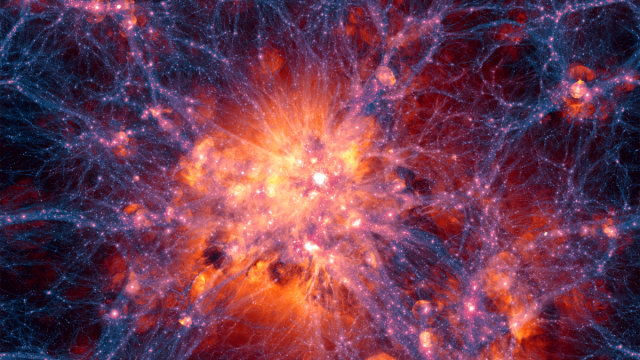The Name “America” Evokes European Colonialism. How Should We Rename It?

When discussing the idea of “America”, political candidates all have a version of the country that they’d like us to see. If it’s not morning in America, then it’s time to reignite the promise of America, to bring about a new American century, or just simply – make America great again. Of course, all these versions of America don’t agree with each other. In fact, no matter the kind of “America” politicians invoke, it probably never existed. This country of immigrants deserves a fresh name that doesn’t bring about undue associations with a mythical, often incorrectly-presented past.
To some people, the word “America” evokes freedom, opportunity and hope. To many, it’s a symbol of strength, a power that will always be there to make sure dictators don’t take over the planet. Yet, there are many others, including millions living in the country of the United States of America, who see “America” as an oppressive force, a historical entity that came to be at the expense of indigenous populations, a legacy of blood-soaked European colonialism.
Millions of Native people lived in the Americas well before Columbus, who wasn’t even the first European to come to their shores. A recent find of a second Viking settlement in North America is proof of that. Yet, it was a chain of events started by Columbus’s voyage that led to what is commonly believed the way America was named.
Columbus thought he discovered a way to Asia and named the land he found ”The Indies”. A merchant and navigator from Florence by the name of Amerigo Vespucci travelled to this land himself and realized it’s not Asia at all, but a whole new continent. Martin Waldseemüller and Matthias Ringmann, a pair of German cartographers in 1507 used Vespucci’s realization to proclaim that the new land should be named “America” to honor Amerigo’s great insight.
There are also other theories of how the name “America” came to be. One of them goes back to the word “Ommerike”, an Old Norse word meaning “farthest outland” or perhaps even “Kingdom of Heaven”. This theory works for you if you want to stress the Nordic roots of the New World.
Another Britain-centric theory has to do with the 1497 travels to America by one John Cabot, whose boats were sponsored by a man from Bristol named Richard Amerike (or Ap Meryke, if you honor his Welsh roots).
There is additionally a theory that Columbus heard the word “Ameriqque” from the native Caribbeans who used it to describe mountains on the mainland. And even the Mayans get credit for America in some anthropological circles as the word apparently means “ a country of perpetually strong wind” or “Land of the Wind” in the Mayan language.
Whatever the origin of the word, we need to look at what it has come to mean today. As other empires of the last two centuries have fallen or become reorganized, America is due for a reinvention. The word “America” is a reminder of the time when condescending European conquerors felt the world at large was a place populated by primitives, and it was the duty of an enlightened European to colonize it at often barbaric costs.
The country of the United States of America has in its DNA a collective forgetting of what it has done to its Native American population, the ongoing pain of its history of slavery, the hard and often dark choices it has had to make to fight the Cold War and emerge as the world’s preeminent (and often disliked) superpower.
It is time to reclaim and rebrand this land by giving it a new name. What kind of name could it be? One approach would be to take its name from the people who have inhabited it before the European colonization. As the recent renaming of Mt. McKinley to its original Koyukon name Denali has shown, such an approach can get traction. However, as there have been countless indigenous people with different languages living on this land, it could be hard to choose which native word to use. I am partial to “Turtle Island”, a very friendly kind of name. Who would want to attack Turtle Island? It sounds like a very friendly place.
Other ideas: Maka (the Lakota word for “Earth”), States of Free People, Niceland, the Land of Awesome Individuals (LAI), New World, or something created, without clear connotations, like Momappo. I am sure we can put our collective energies together and figure this out (thanks in advance, Internet). We could use a fresh start.





